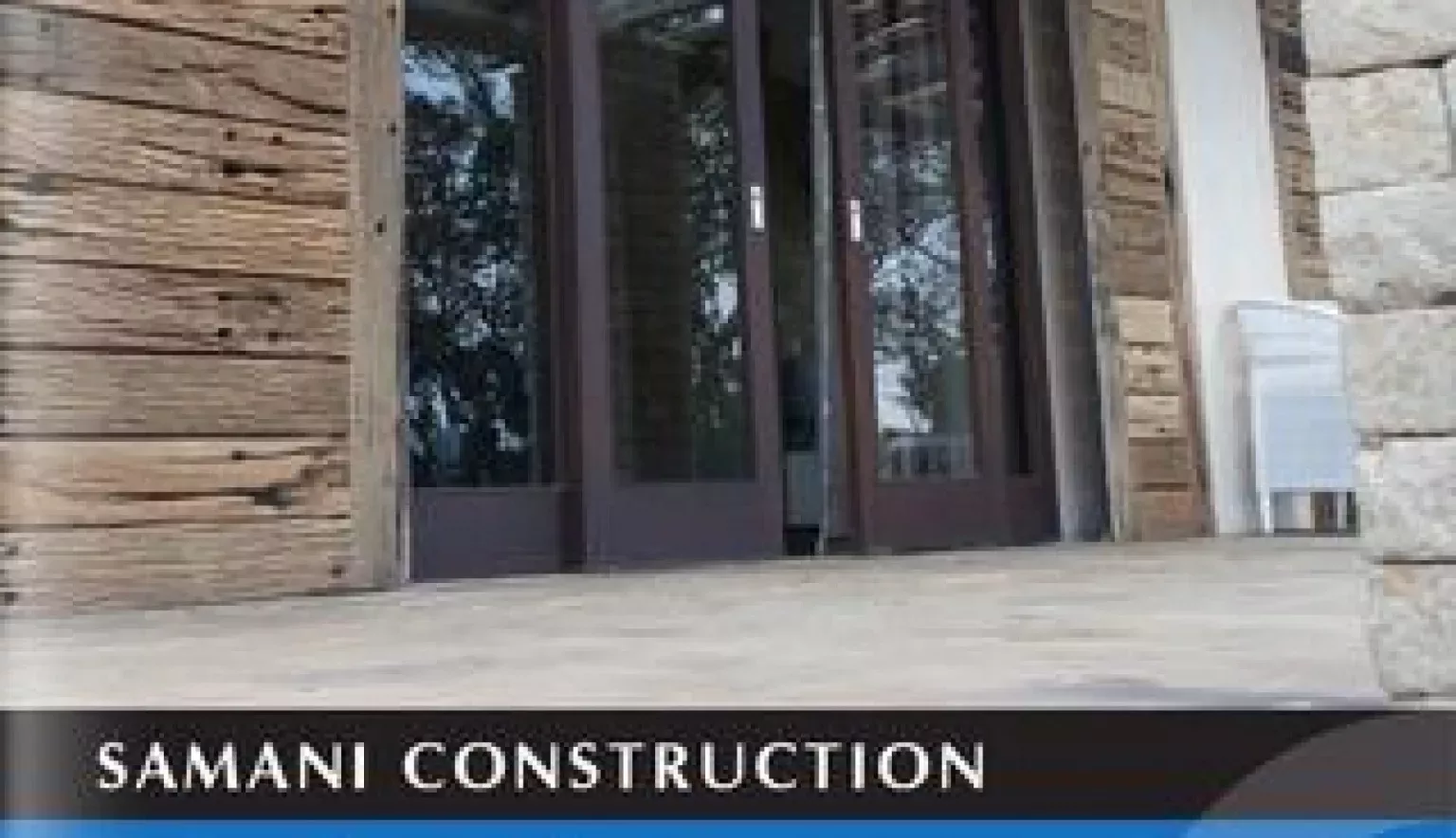For the best part of 18 years, Samani Construction has built a strong reputation in Kenya for its sustainable projects and ethical workmanship, as the focus now turns towards replicating its success across a wider footprint.
QUALITY AND ETHICAL WORKMANSHIP
Opening in 1997 as a small joinery workshop, a series of expansions, investments and organic growth opportunities has led the business towards a more turnkey approach in recent years, encompassing fit-outs and small construction works.
As a family run business, the Company’s growth has been facilitated by an internal flexibility and entrepreneurial flair which, in turn, has a direct knock-on effect on the quality of work carried out by each employee.
Ultimately, the reputation that has manifested as a consequence has been the pulling factor for a series of significant contracts attained over Samani’s tenure in the Kenyan market, and beyond.
The picturesque Sirai House in Nanyuki is just one example of the Company’s ability not only to produce state-of-the-art constructs, but to do so in-keeping with different environments, terrains and sceneries to best complement the area.
Capital Club in Nairobi is further proof of this ability, with ‘East Africa’s Premier Private Business Club’ indicative of Samani’s customised approach to catering for a range of clients’ needs.
A synonymous high quality finish was also applied to the entrance of Sankara Hotel in Nairobi, setting the scene for similarly high profile projects being constructed by the Company at present.
Managing Director, Dinesh Sachania notes: “At the moment, we are involved in refurbishing the Crowne Plaza Hotel, Windsor Golf Resort Hotel and the new branches of the Dubai International Bank, Lazizi Airport Hotel and Tune Hotel.”
HIGH QUALITY
Primarily specialising in the fit-outs of offices, hotels and homes, the Company’s bread and butter has traditionally stemmed from its abilities in customer joinery, dry wall partitioning and ceilings.
However, completing this ilk of project to such high standards has opened the door to some of the more lucrative aforementioned opportunities; also incorporating more corporate facilities and works in nationally significant buildings like airports.
To facilitate this more all-encompassing range of clientele and contracts, Samani has subsequently had to instil a series of enhanced internal procedures to ensure it remains ahead of the industry curve and up to the very latest codes and standards.
“Over the years we have brought in several pieces of automated machinery to help cope with the increase in high quality goods and uniformity. So far our investments have paid off,” Sachania explains. “We have always tried to build up our work standards with the current trends.”
One such trend at present brings into play the role of international influences, such as the European style fit-out constructs which require a host of different processes and designs.
Once again, the advantage of having customisable automated machineries has gone a long way in efficiently adhering to such fluctuations in a relatively short space of time.
A clear and concise supply chain management strategy further enforces said efficiencies, once again utilising advanced systems to ensure the smooth transference of requirements from the Company’s sites to its main warehouse and then back again.
A subsequent knock-on effect on procurement is also engrained into the system via its procurement office to complete a cycle which has proven pivotal to the Company’s ongoing success.
WORK ETHICS
With Kenya known as a gateway for East African business across the full range of industry sectors, construction is certainly no different, and Samani has been able to leverage its early successes to breach the surrounding region.
Operating as far into the continent as Uganda, Tanzania and Rwanda, there isn’t much of East Africa that Samani Construction considers off limits, and this strategy has only come to fruition as a result of its equally prominent commitment to local considerations and sustainable growth.
This begins within the workforce as Sachania explains: “The majority of our staff are locals, and while we do have a few who come from abroad, they do so to help train the local staff as well as maintain the quality of people who specialise in certain works.”
All told, 90 percent of the Samani workforce are locally hired, trained and promoted; a statistic which aptly bridges the gap between its employment philosophy and its wider corporate social responsibility commitments.
Applying its construction skill-sets to the building of schools in the reserve areas of Masai Mara and Nanyuki forms just the basis of this enrichment of the local communities and once again epitomises what Samani Construction is most renowned for in the MD’s eyes: “quality workmanship and good work ethics”.






























